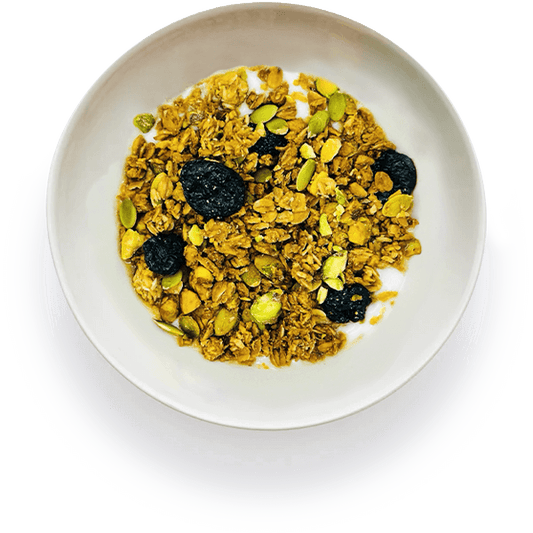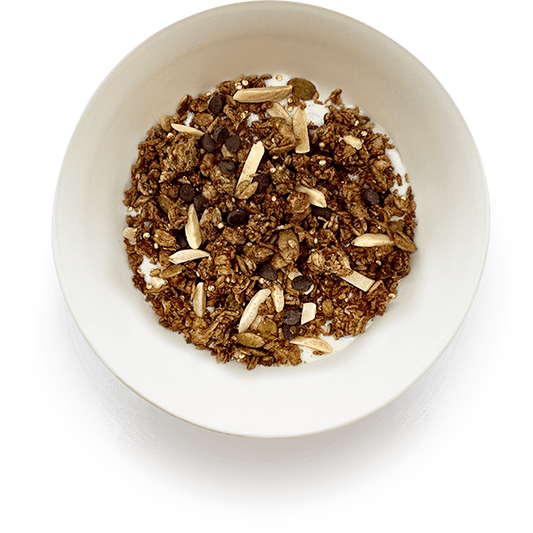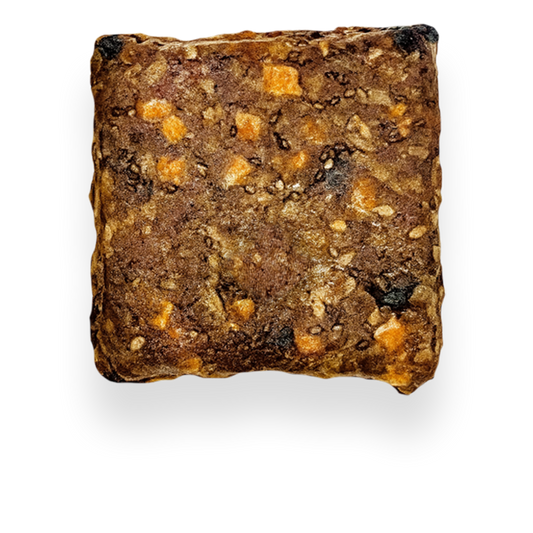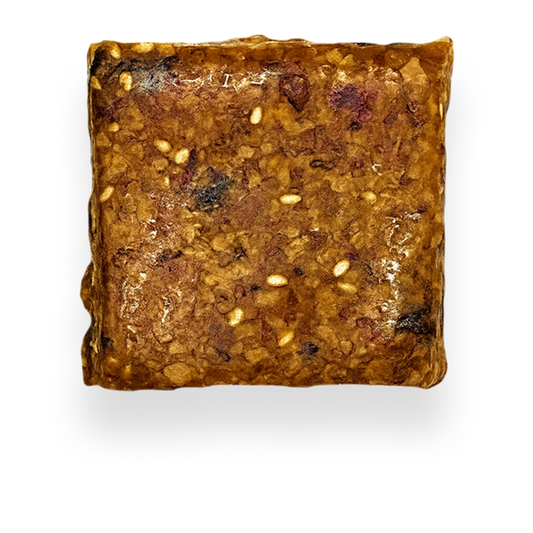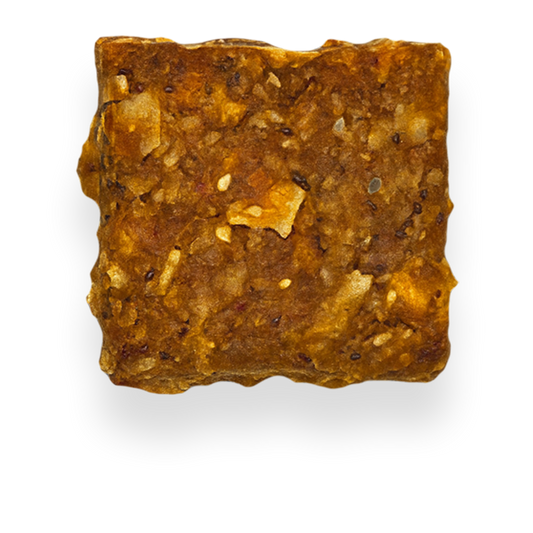Unlocking the Power of Macronutrients in Plant-Based Foods
By FireRoad
In recent years, the conversation around nutrition has been increasingly focused on plant-based diets, bringing to light the importance of macronutrients. Whether you're a seasoned vegan or just starting to dabble in plant-based meals, understanding macronutrients is essential for optimizing your health. This article will take you through the fascinating world of plant-based macronutrients, helping you craft nutritious and delicious meals, like a scrumptious Tex-Mex breakfast bowl, that fuel your body and mind.
What Are Macronutrients?
Macronutrients are the essential nutrients that provide energy and are critical for growth and development. They play a substantial role in our overall health and well-being. The three primary macronutrients include:
- Carbohydrates: The body's main source of energy.
- Proteins: Essential for tissue repair, immune function, and enzyme production.
- Fats: Necessary for hormone production, nutrient absorption, and maintaining cell integrity.
Why Are Macronutrients Important in a Plant-Based Diet?
Incorporating a balance of macronutrients into your diet is vital, especially when you opt for a plant-based lifestyle. Achieving the right balance not only maximizes health benefits but also enhances the enjoyment of your meals. Here's why each macronutrient matters:
Carbohydrates: The Energy Source
Carbohydrates are a key player in any diet, particularly for those engaged in regular physical activity. In the realm of plant-based foods, carbohydrates can be sourced from grains, fruits, and vegetables. These foods are packed with not just energy, but also vital nutrients like fiber, vitamins, and minerals.
Consider incorporating whole grains like quinoa, brown rice, or farro into your meals. For instance, a Tex-Mex breakfast bowl featuring quinoa or brown rice as a base can significantly contribute to your carbohydrate intake and keep you energized throughout the day!
Proteins: Building Blocks of Life
While protein is often associated with animal products, there’s a plethora of plant-based sources rich in protein, making it easier than ever to meet your protein needs. Legumes, nuts, seeds, and certain grains are excellent plant-based protein options.
Combining different protein sources, such as beans in your Tex-Mex breakfast bowl, not only ensures you get a complete protein profile but also adds layers of flavor and texture to your meals.
Fats: The Unsung Hero
Fats have been unfairly demonized in the past; however, they are a crucial component for a well-rounded diet. Healthy fats can be found in foods like avocados, nuts, seeds, and olive oil. They help with the absorption of fat-soluble vitamins (A, D, E, and K) and provide essential fatty acids that the body cannot produce on its own.
In a delicious Tex-Mex breakfast bowl, adding sliced avocado or a drizzle of olive oil not only enhances the flavor but also contributes to a balanced nutrient profile.
How to Properly Balance Macronutrients in Your Meals
When crafting a balanced plate, it’s essential to consider each macronutrient's ratio. Although individual needs can vary, aiming for a general guideline can help prioritize what to include in your meals. Here’s a basic framework:
- 50-60% Carbohydrates: Opt for whole grains, fruits, and vegetables.
- 20-30% Proteins: Include legumes, tofu, tempeh, nuts, and seeds.
- 20-30% Fats: Focus on healthy fats such as avocados, nuts, and seeds.
Exploring the Best Plant-Based Sources of Macronutrients
Top Carbohydrate Sources
Choosing the right carbohydrates is essential for maintaining energy levels and providing your body with plenty of nutrients. Here are some top sources:
- Whole grains like oats, quinoa, and brown rice
- Fruits such as bananas, berries, and apples
- Vegetables, especially starchy ones like sweet potatoes and corn
Best Plant-Based Protein Sources
For those following a plant-based diet, ensuring adequate protein intake is crucial. Here are some fantastic sources:
- Lentils: Packed with protein and fiber
- Chickpeas: Versatile and delicious in salads or bowls
- Tofu and tempeh: Perfect substitutes for meat
- Nuts and seeds: Almonds, chia seeds, and hemp seeds
Healthy Fat Sources
Including healthy fats in your meals ensures your body can absorb important nutrients while providing long-lasting energy. Look for these:
- Avocados: Creamy texture and packed with monounsaturated fats
- Olive oil: A staple in Mediterranean diets
- Nut butters: Perfect for spreading on whole-grain toast or in smoothies
- Seeds: Flaxseeds, walnuts, and chia seeds
Creative Ways to Incorporate Macronutrients
Diversifying your diet doesn’t have to be dull! Here are some creative ways to add macronutrients into your favorite meals:
Revamping Your Breakfast Routine
Are you stuck in a breakfast rut? Try starting your day with a Tex-Mex breakfast bowl. Combine scrambled tofu seasoned with spices, black beans, corn, diced tomatoes, and topped with avocado. This meal is a fantastic way to get a variety of macronutrients early in the day!
Lunch That Packs a Punch
For lunch, consider a hearty grain bowl. Use farro or quinoa as a base and pile on your favorite roasted vegetables, chickpeas, and a tahini dressing to create a satisfying and nutritious meal.
Snack Smartly
Snacking on nuts or a simple homemade guacamole with veggies can not only satisfy your cravings but also keep your macronutrient intake balanced throughout the day.
Understanding Nutritional Labels
When shopping for plant-based foods, understanding nutritional labels is essential to ensure that you are getting high-quality sources of macronutrients. Here’s what to look out for:
- Check the serving size: Understand the number of servings in a package.
- Focus on fiber content: Aim for foods high in dietary fiber, which is beneficial for digestive health.
- Watch out for added sugars and preservatives: Choose whole, unprocessed foods whenever possible.
- Look for protein content: Ensure that you’re meeting your protein needs, especially in a plant-based diet.
Final Thoughts: Nourish Your Body with Balance
Understanding macronutrients in plant-based foods empowers you to create balanced and nourishing meals that delight your palate. With options as vibrant and filling as a Tex-Mex breakfast bowl, eating well can be enjoyable and fulfilling. Embracing the diversity of plant-based sources not only helps to meet your nutritional needs but also allows you to maintain a healthy lifestyle while enjoying every bite. So dive into your next culinary adventure, and let the power of macronutrients fuel your journey to wellness!



